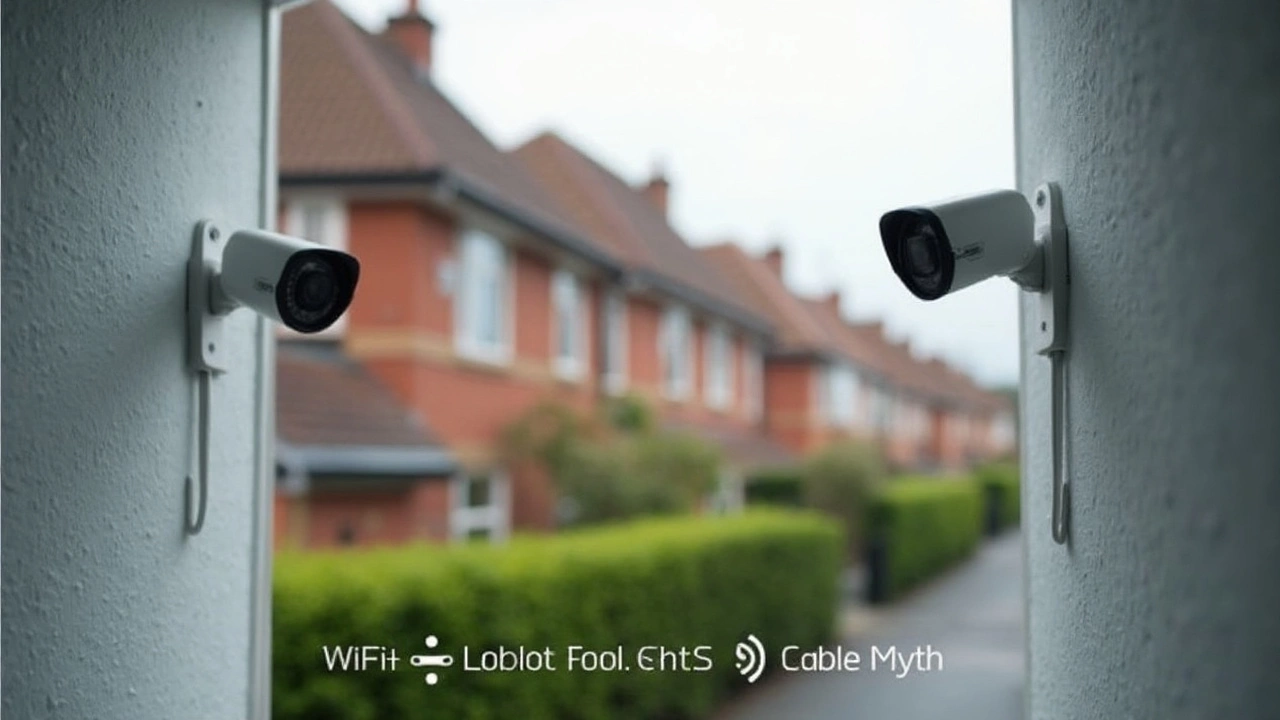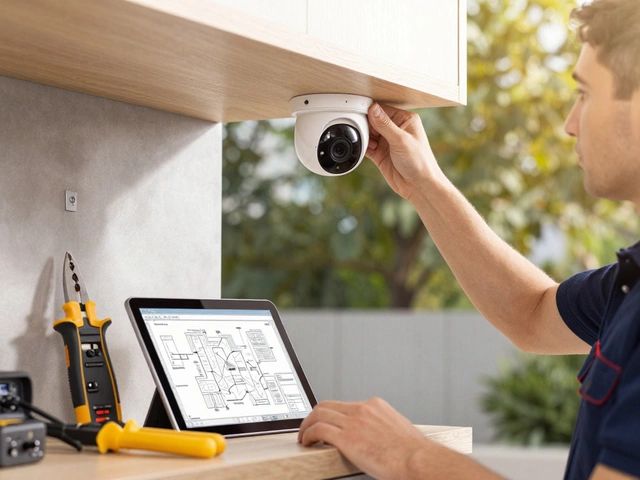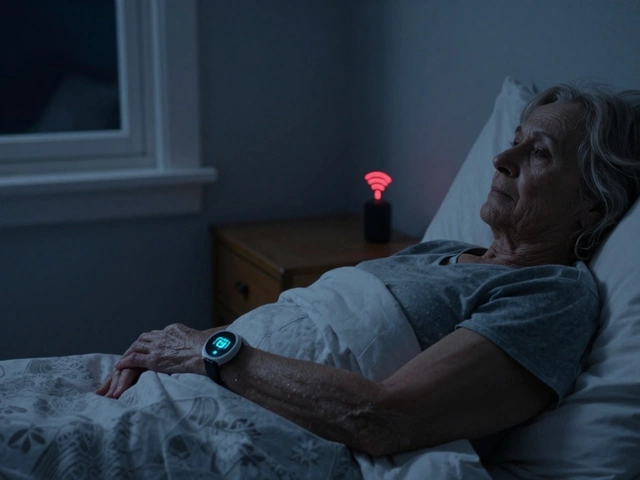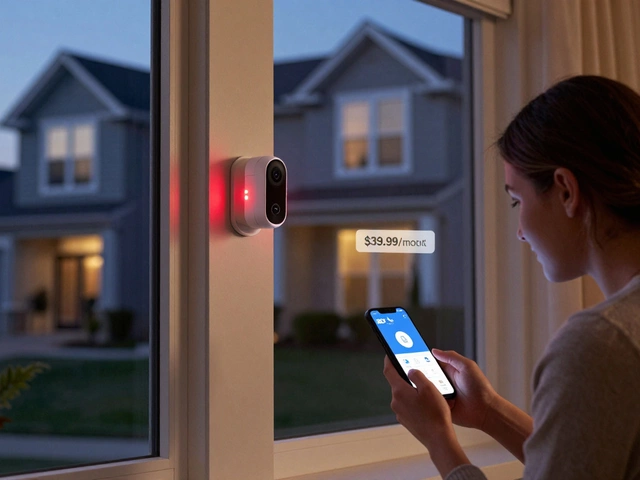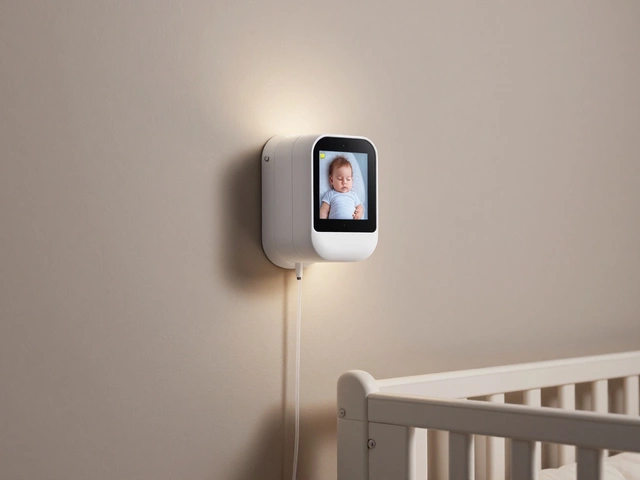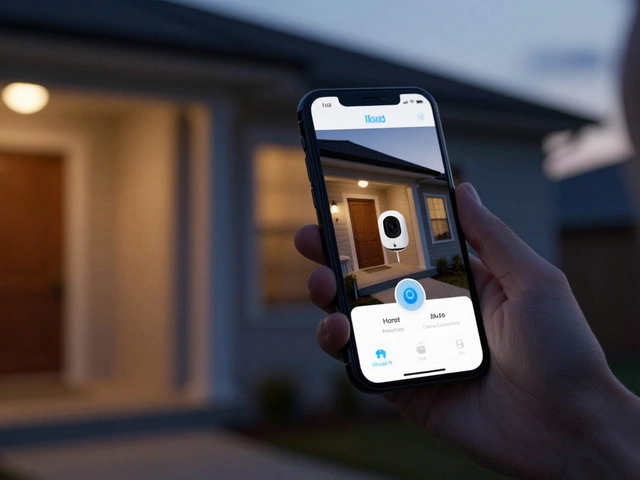If you’ve ever looked at security cameras and wondered, "Do I actually need WiFi for this thing to work?"—you’re not alone. Not every CCTV camera out there needs WiFi, and understanding this can save you from spending on upgrades or gear you just don’t need. Whether you’re protecting a small apartment or covering a big backyard, the answer depends a lot on the type of camera you’re thinking about.
Plenty of folks assume all modern cameras rely on WiFi to function. That’s just not true. Some cameras run completely fine with a wired setup—meaning they connect straight to a recorder using cables. Others need WiFi if you want to check footage from your phone or get instant alerts. So before dropping cash on anything, it's smart to figure out what you actually want your camera to do. Maybe you care about seeing live feeds on your phone at work, or maybe you just want a basic setup that records footage in case something happens while you’re on vacation. Your choice makes a big difference in the final bill.
- What Kind of CCTV Cameras Need WiFi?
- How Connectivity Impacts Installation Cost
- Can You Get by Without WiFi?
- Real Tips for Affordable Home Security
What Kind of CCTV Cameras Need WiFi?
So, let’s clear up one thing: just because a camera looks modern or shows up at the top of search results, that doesn’t always mean it needs WiFi. The ones that do fall into a few main categories. First up, there are wireless IP cameras. These are the cameras people often pick when they want to see their front porch from their phone or check in on their pets during the day. They send video over your home WiFi and can push alerts directly to your device if something’s moving around your property.
Battery-powered cameras like the ones you can stick on a wall without drilling a single hole—think brands like Ring or Arlo—rely on WiFi too. They won’t work unless they can connect to your internet. In some setups, even doorbell cameras need that connection to let you see who’s at your door through your smartphone.
On the flip side, wired CCTV cameras, the type you see in stores or older houses, use coaxial or Ethernet cables. These run right to a DVR or NVR inside your house. They don’t care about your WiFi at all if you just want them to record footage locally. They’re the "fire-and-forget" option—set up your cables, plug in the recorder, and you’re good.
- WiFi is necessary if you want remote access—watching live feeds from your phone, tablet, or laptop.
- You’ll need WiFi for cloud storage features, automatic updates, and smart device integrations like Alexa or Google Home.
- If your camera is wireless and battery-powered, WiFi is non-negotiable.
- Traditional wired cameras save video even if your internet goes out and don’t care about bandwidth or WiFi range.
Quick tip: Don’t assume "wireless" means "no wires at all"—most still need to be plugged in for power unless they run on batteries. Read the box carefully or ask the installer so you don’t get caught off guard.
How Connectivity Impacts Installation Cost
Connectivity plays a massive role in what you’ll end up spending on your CCTV camera installation. Most people immediately picture WiFi-connected cameras, probably because they’re advertised everywhere as "wireless" and "easy to install." But that just tells part of the story—and sometimes, going wireless can actually cost more than you'd think.
Let’s break it down: wired CCTV systems need data cables and often a power source for each camera. This usually means running cables through walls or ceilings, which can take serious time and labor—translating straight to your bottom line, especially if your house is already finished and not under construction. On the flip side, WiFi cameras typically avoid drilling and can be set up in less time. But here’s the catch—wireless cameras still need a power outlet or batteries, and if your WiFi isn’t rock-solid, you might end up paying extra for network upgrades or even special boosters.
- Wired camera install: higher labor cost, but usually no recurring fees.
- WiFi camera install: lower labor cost, but possible extra spending on strong WiFi gear or cloud storage.
Another hidden cost: Some wireless cameras require a paid subscription for video backup or remote viewing, while wired systems often store footage on a local hard drive with no monthly fee. Over the course of a few years, that subscription adds up quick. Take a look at this sample table for typical installation and ongoing costs:
| Camera Type | Install Labor (per cam) | Materials (per cam) | Ongoing Costs |
|---|---|---|---|
| Wired CCTV | $120 – $200 | $50 – $150 | Mostly none |
| WiFi CCTV | $60 – $120 | $80 – $200 | $5 – $15/month (cloud, optional) |
Here’s a simple tip: If your internet is spotty or your house is big, plan on spending more to get your WiFi cameras working right. Don’t forget to budget for a few extension cords or extra batteries, too. Always check if subscription fees are hiding in the fine print before you buy, since these can quietly double your camera costs over time.

Can You Get by Without WiFi?
This might surprise you, but yes—you can absolutely run plenty of CCTV camera setups with zero WiFi. Wired cameras have been around for decades and they still work great, especially if all you really need is a reliable record of what’s happening around your place. The main advantage? Wired systems aren’t affected by shaky internet or WiFi dead zones in your house. If the connection’s physical, there’s no signal drop when your teenager streams their games or the router freaks out.
With a wired CCTV system, each camera connects to a recorder using cables—usually something called coaxial or Ethernet cables. The recorder (often called an NVR or DVR) stores all the footage, and you can review clips by plugging a monitor in straight to that box. No WiFi involved at all. In fact, these systems are known for consistent performance, since you’re not relying on wireless signals that can get jammed or hacked easily.
Here’s what going WiFi-free means for you:
- You’ll need to run cables from each camera to your recorder—sometimes a pain if your house is big or you want outside coverage. But once it’s done, it’s solid and usually lower hassle in the long run.
- You won’t be able to check your cameras on your phone, unless you add special gadgets later that plug your system into the internet.
- No need to stress about your WiFi password or hackers trying to jam your footage. Wired systems are harder for random people to mess with remotely.
- During internet outages, your cameras keep rolling with zero trouble. Your kids can watch all the YouTube they want—the cameras won’t miss a thing.
If you’re not set on having live alerts or remote access, skipping WiFi can save you setup headaches and sometimes even money. For people with unreliable internet or a big property where WiFi just doesn’t reach, wired CCTV might be the smarter, sturdier pick.
Real Tips for Affordable Home Security
Keeping your place safe doesn’t mean you have to throw money at every new gadget out there. If you want real peace of mind and are watching the budget, it pays to know where you can save and what’s actually worth the investment.
First, decide if you really need a CCTV camera that connects to WiFi. If you just want the footage recorded and don’t care about checking it on your phone, go with a wired system. These are usually cheaper over time since you won’t have to worry about upgrading your router or getting stronger WiFi throughout your property. Plus, wired cameras are less likely to suffer from signal drops or hacking—which, let’s be honest, is a headache no one wants.
It’s also smart to keep an eye on installation costs. Here’s a quick breakdown for 2025:
| System Type | Average Equipment Cost | Typical Installation Fee | Monthly Fees |
|---|---|---|---|
| Wired CCTV | $60 - $180 per camera | $100 - $500 (one-time) | $0 |
| Wireless CCTV (WiFi) | $80 - $250 per camera | $70 - $300 (one-time) | $0 - $50 (for remote viewing/cloud) |
Here are a few tricks that have worked for families like mine:
- Put cameras somewhere obvious—right by the front door or garage. Sometimes, just seeing a camera makes people think twice.
- If you want remote access but don’t want to spring for constant WiFi, use recorders with built-in hard drives. You’ll still have the evidence if you ever need it.
- Skip the cloud plans unless you really need 24/7 remote access. A memory card or a hard drive can do the job just fine for most people.
- Combine motion lights with cameras. Bright lights can scare off intruders before the camera even starts recording.
And one last thing—don’t try to hide every camera. People are less likely to mess with your stuff when they know you’re watching them. You don’t need to break the bank to stay safe.

